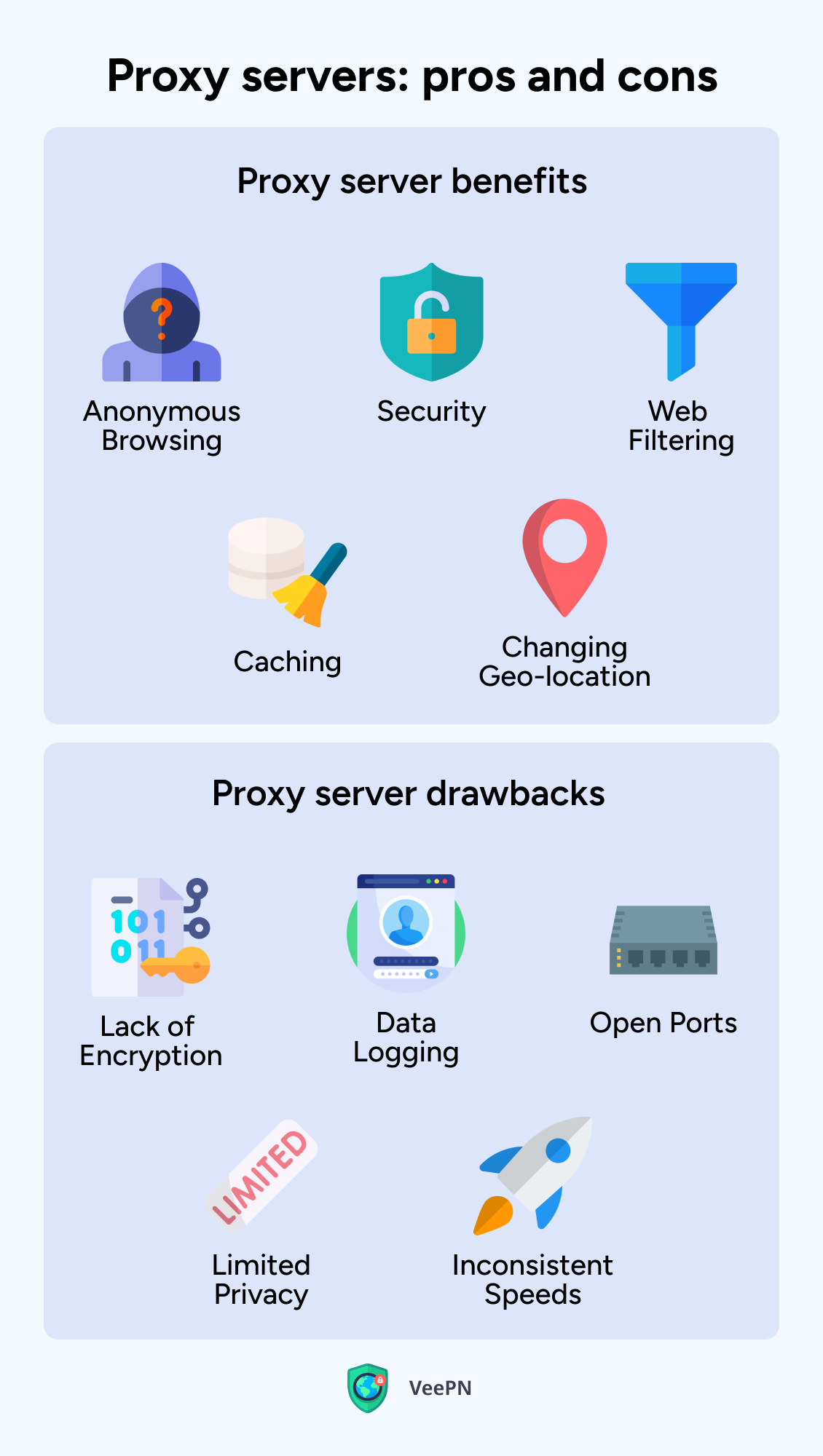In the current digital landscape, obtaining content online can frequently feel like navigating a labyrinth. Geo-restrictions imposed by websites and streaming platforms can obstruct your capability to access the content you desire. Luckily, proxy servers have emerged as a widely-used solution to bypass these barriers, providing users with the means to access geo-restricted content with ease. However what exactly is a proxy server, and how does it function?
By acting as an intermediary between your computer and the internet, proxy servers can hide your IP address and make it look as though you are browsing from a different location. This functionality not only enables access to region-locked content but also offers advantages in regarding privacy and security. As we explore further into the world of proxy servers, we will explore their different types, their differences from VPNs, and how they can improve your online experience while protecting your personal information. If you are a regular internet user or a business seeking protect confidential data, grasping how proxy servers work is essential in today's interconnected world.
Comprehending Proxy Servers
Proxy servers function as intermediaries between users and the internet. When you link to a proxy server, your requests for web resources are directed to the server instead of going straight to the target site. This indicates that the proxy fetches the data on your behalf, allowing you to reach information while masking your real IP address. The effect is a degree of anonymity and privacy, rendering it harder for sites to monitor your browsing behavior.
The method proxy servers operate can differ, based on the kind of proxy utilized. Some proxies, such as HTTP or SOCKS, are configured for distinct protocols and applications. To illustrate, an HTTP proxy is tailored for web traffic, while a SOCKS proxy is more versatile, accommodating various types of online data. Grasping these distinctions can help users select the right form of proxy to meet their requirements.
In addition to privacy gains, using proxies can enhance online safety. By sending internet traffic through a proxy, confidential data can be encoded, helping to prevent unapproved access. Companies often employ proxy servers to oversee and monitor staff internet conduct, block harmful sites, and limit risk to cyber threats. As more users understand the significance of online protection and privacy, the importance of proxies remains significant in importance.
Benefits and Risks of Proxy Usage
The utilization of proxies offers several advantages that can significantly enhance digital interactions. https://omeka.net of the main benefits is enhanced privacy online. By masking your IP address, a proxy server helps protect your identity, making it more difficult for sites and marketers to track your digital activities. https://omeka.net added layer of concealment can be particularly helpful for individuals worried about data privacy and monitoring. Furthermore, proxy servers can assist bypass geo-restrictions, allowing individuals to access materials that may be inaccessible in their areas.
However, there are also risks associated with utilizing proxies that individuals should be mindful of. Many free proxy servers may jeopardize user safety, as they can record your activities or insert ads into the web pages you visit. Additionally, some proxies may not adequately encrypt your data, leaving you vulnerable to cyber threats. Users must exercise care when selecting a proxy, as the wrong choice could undermine the very privacy and security they are trying to achieve.
Another risk revolves around possible performance issues. While proxy servers can enhance speed in certain situations, such as storing frequently used content, they can also cause delays if the server is overloaded or if there is a poor network connection. This can result in unpleasant experiences, especially for activities that require fast connections, such as online gaming or streaming. It's crucial for users to consider the advantages against these risks to make informed decisions about their proxy usage.

Proxy servers for Streaming and Video gaming
Proxy servers play a key role in enhancing streaming experiences and improving the gaming experience. For media platforms like Hulu and Hulu, regional restrictions can hinder access to shows based on your region. Using a proxy allows you to bypass these restrictions by concealing your internet protocol address and seeming as if you are accessing the service from a different region. This enables subscribers to gain access to a larger selection of films and series while utilizing their preferred services without any hassle.
Video gaming is an additional field where proxy systems can significantly enhance player experience. Many gamers experience issues such as lag and lag, which can hinder gameplay. By connecting to a proxy service, players can reduce ping by routing to data centers closer to the gaming hub. Additionally, proxy servers can help bypass IP bans that might be enforced on players engaged in competitive matches, permitting them to enjoy a smooth play session without breaks caused by regional restrictions or blockades.
Moreover, proxies can improve overall online gaming security by hiding your true IP address, thereby shielding you from potential attacks from cybercriminals. This added layer of privacy is crucial in online game scenarios where player data can be exploited. By utilizing a proxy service, gamers can not only enjoy geo-locked games but also secure their online safety while doing so, ultimately leading to a better and protected gaming experience.
